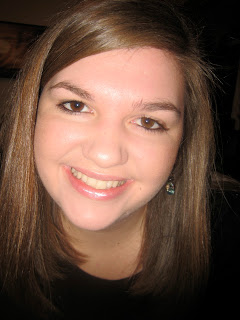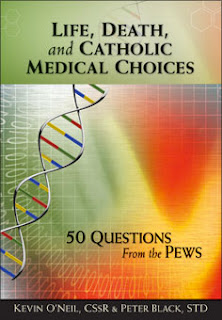quotes
First, What Are You Reading? Volume 20, April 2012
First, What Are You Reading? Volume 19, March 2012
Meet a Reader: Shirley Plaag
“Meet a Reader” appears on the monthly book page of The Catholic Post, and it features someone within the diocese of Peoria who enjoys reading. Here are the four questions I ask “readers” to answer: how you (meaning Post readers) know me, why I love reading, what I’m reading now, and my favorite book. This month, I feature Shirley Plaag, a delightful young woman who is a fellow volunteer on the Behold Conference.
How you know me:
I was born and raised here in Peoria and have lived here just about my entire life, minus four years of college at Franciscan University of Steubenville and a year of mission work at St. Gianna’s Maternity Home in North Dakota. I am currently a member of St. Jude Parish in Peoria were I work with a wonderful group of 4th graders every Sunday. I most recently began teaching religion to another wonderful group of middle school students at St. Mary’s School in Kickapoo. Last, but not least, I sell books at Lagron-Miller Company alongside the lovely Gina McKenna. When I’m not working or reading, I love to cook and bake. Just ask my friends and family!
Why I love reading:
I love reading quite simply because it transforms my life. After studying four years of Theology and Catechetics, I have covered a lot of ground in spiritual reading. God speaks to me through the things that I read by challenging me and calling me to a deeper conversion. My favorite thing about reading- whether it be a poem by Gerard Manley Hopkins, the life of a great saint or the writings of the Holy Fathers- is that it is something that I can share with others to deepen their understanding or devotion as well as my own.
What I’m reading now:
I think that I may have a bookmark in at least 10 books at the moment! I just finished Mystery of Joseph by Fr. Philippe, founder of the Community of St. John. This beautiful book sheds a new light on the Gospel accounts where St. Joseph is present and gives an intimate look into the life of the Holy Family. Scott Hahn called this book “profound and deep” and I wholeheartedly agree. In the spirit of the coming feasts of Christmas, I am also reading the classic Charles Dickens’ novel A Christmas Carol and Come, Lord Jesus: Meditations on the Art of Waiting by Mother Mary Frances P.C.C. Recently, I have picked up Ablaze: Stories of Daring Teen Saints by Colleen Swaim to share with my students.
My favorite book:
Choosing a favorite book is a challenge. There are many that I am passionate about, but there are two that stand out among the stacks. The first is A Serve Mercy by Sheldon Vanauken. This is a poignantly written memoir about the journey of the author and his wife from “A Pagan Love,” a love that is turned in on one another to a selfless love of the living God, Jesus Christ. This true story is full of beauty, poetry, joy, despair and honesty about what it means to fully convert our lives to Christ. This message is clear: there is no middle ground and there is no turning back once we have encountered Him. [The following is my favorite excerpt from the book, written by the author before his conversion: “How did one find joy? In books it seemed to be found in love- a great love- though maybe for the saints there was joy in the love of God. He didn’t aspire to that, though; He didn’t even believe in God. Certainly not! So, if he wanted the heights of joy, he must have, if he could find it, a great love. But in the books again, great joy through love seemed always to go hand in hand with frightful pain. Still, he thought, looking out across the meadow, still, the joy would be worth the pain- if indeed, they went together. If there were a choice- and he suspected there was- a choice between, on the one hand, the heights and the depths, and on the other hand, some sort of safe, cautious middle way, he, for one, here and now chose the heights and depths.”]
The second is I Believe in Love: A Personal Retreat on the Teaching of St. Thérèse of Lisieux by Fr. Jean d’Elbée. This book has changed my life time and time again. It is one that I go back too when I need to relearn the “Little Way” of St. Thérèse. This book, written with a great deal of gentleness and love has brought me through many trials in life and reminded me that I am a joy for Jesus because “His delight is to be with the children of men” (Prov. 8:31).
I am also a big fan of anything written by C.S. Lewis, Peter Kreeft, and Archbishop Charles Chaput just to name a few. But, I digress. I can’t write about them all. I must join St. John the Beloved Disciple in saying “were every one of them to be written, I suppose the that the world itself could not contain the books that would be written” (John 21:25).
A Quote for Monday: Life, Death and Catholic Medical Choices
There’s a little–okay, a lot– of blogger guilt about how little I’ve written here this month about the book Life, Death and Catholic Medical Choices. I truly believe this is a great, easy-to-read guide for people about the richness of our Catholic faith. As I wrote about in my Catholic Post review of the book:
“Just because someone slept at a Holiday Inn Express– or has read a lot of Church documents–doesn’t guarantee good results when one tries to charitably explain or defend Church teaching accurately, especially on complicated and critical issues of life and death. In this area, what’s most needed is loving and well-formed professionals. Two of these have written Life, Death & Catholic Medical Choices. Take advantage of their wisdom and guidance, and keep this book on hand.”
I hope to write more about this concept during this week, to catch up for what I’ve missed conveying about this excellent resource and the necessity to “trust the professionals.” In the meantime, I wanted to share with you an excerpt from the book. The book is in a question and answer format, which makes it easy to read and reflect in short sections:
What is the difference between medical intervention and basic healthcare?
Medical interventions to restore health, alleviate pain, or prolong life usually require medical professionals. Other activities such as ensuring cleanliness and warmth, feeding, the giving of water, and respecting the personal dignity of belong to basic healthcare, sometimes referred to as natural care. Church statements give the impression that all forms of natural care are normally obligatory. Of course there can come a time when it is unreasonable to force a dying person to eat or drink in the normal fashion because such as insistence is too burdensome for the patient and there is very little to be gained.
Perhaps we should include spiritual care of the person under the heading of natural care. Here, too, we need to be sensitive to the condition of the patient. Sometimes a faith-filled dying person may ask family members to tone down vocal prayers, as wonderful as they may be, because noise causes her pain or agitation. There are appropriate and inappropriate times to raise spiritual matters with the sick and dying.
One may ask if artificial nutrition and hydration are a medical intervention or natural basic healthcare? Interesting, John Paul II in 2004 stated: “I should like, particularly, to underline how the administration of water and food, even when provided by artificial means, always represents a natural means of preserving life, not a medical act.” The pope goes on to state that, in principle, such nutrition and hydration are morally obligatory until they have attained their proper finality, which is providing nourishment and alleviating suffering.
So, in the case where a patient’s body can no longer process such nutrition or hydration or its administration causes them more suffering, we would have a situation where what is normally natural care is causing more burden than benefit and would cease to be obligatory. The fact that an action is termed natural care does not necessarily mean that it cannot be judged extraordinary in certain circumstances. In fact, is it well-known that both Pope John Paul II and Cardinal John O’Connor refused nutrition and hydration when it had become an extraordinary measure for the preservation of life, when it had become an excessive burden, or when their bodies could no longer assimilate the nutrients provided.

